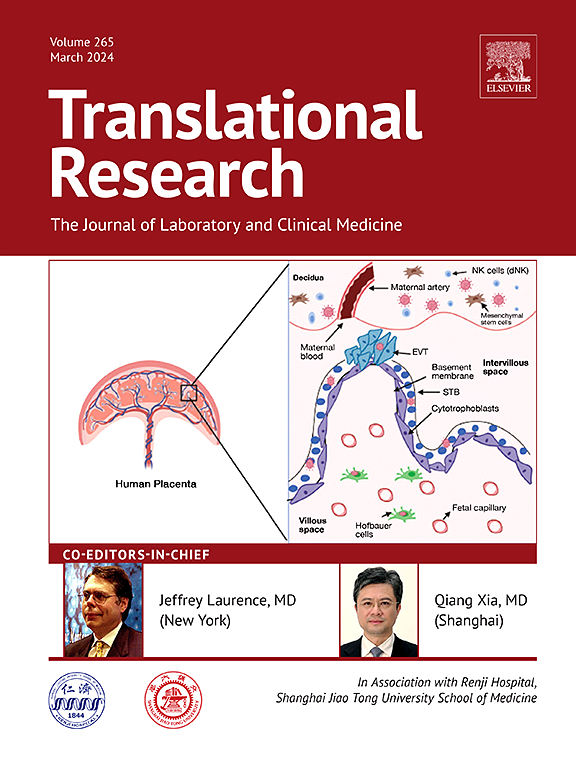Appendiceal B lymphocytes contribute to the pathogenesis of experimental colitis through fueling colonic CD4+ T polarization
IF 5.9
2区 医学
Q1 MEDICAL LABORATORY TECHNOLOGY
引用次数: 0
Abstract
The appendix, a component of the gut-associated lymphoid tissue enriched with B lymphocytes, plays a pivotal role in intestinal mucosal immunity. Previous studies have indicated that prior appendectomy may prevent the onset of ulcerative colitis (UC); however, its therapeutic role in UC remains unclear, and prophylactic appendectomy is not a realistic approach to prevent UC. In this study, we confirmed that appendectomy alleviates dextran sodium sulphate (DSS)-induced chronic murine colitis and further demonstrated that appendiceal B (APB) lymphocytes exacerbate colonic inflammation by migrating to the colon via the CCL20–CCR6 axis and facilitating colonic CD4+ T cell-mediated T helper 1 (Th1) and T helper 17 (Th17) immune responses. Single-cell sequencing of colonic tissues revealed IgG+ B cell-skewed responses in patients with UC, and APB cell expansion was positively correlated with disease severity. Immunofluorescence co-staining suggested that colonic B cells of UC patients related to the appendix. These findings highlight the therapeutic potential of appendectomy and B cell-targeted immunotherapy in UC treatment and further introduce the hypothesis that UC with appendiceal orifice inflammation may represent a distinct subtype of the disease.
阑尾B淋巴细胞通过促进结肠CD4+ T极化参与实验性结肠炎的发病机制
阑尾是富含B淋巴细胞的肠道相关淋巴组织的组成部分,在肠黏膜免疫中起着关键作用。先前的研究表明,事先阑尾切除术可以预防溃疡性结肠炎(UC)的发生;然而,其在UC中的治疗作用尚不清楚,预防性阑尾切除术并不是预防UC的现实方法。在本研究中,我们证实阑尾切除术减轻了葡糖酐硫酸钠(DSS)诱导的慢性小鼠结肠炎,并进一步证明阑尾B (APB)淋巴细胞通过CCL20-CCR6轴迁移到结肠,促进结肠CD4+ T细胞介导的T辅助1 (Th1)和T辅助17 (Th17)免疫应答,从而加剧结肠炎症。UC患者结肠组织单细胞测序显示IgG+ B细胞偏斜反应,APB细胞扩增与疾病严重程度呈正相关。免疫荧光共染色提示UC患者结肠B细胞与阑尾有关。这些发现强调了阑尾切除术和B细胞靶向免疫疗法在UC治疗中的治疗潜力,并进一步提出了UC伴阑尾口炎症可能代表该疾病不同亚型的假设。
本文章由计算机程序翻译,如有差异,请以英文原文为准。
求助全文
约1分钟内获得全文
求助全文
来源期刊

Translational Research
医学-医学:内科
CiteScore
15.70
自引率
0.00%
发文量
195
审稿时长
14 days
期刊介绍:
Translational Research (formerly The Journal of Laboratory and Clinical Medicine) delivers original investigations in the broad fields of laboratory, clinical, and public health research. Published monthly since 1915, it keeps readers up-to-date on significant biomedical research from all subspecialties of medicine.
 求助内容:
求助内容: 应助结果提醒方式:
应助结果提醒方式:


